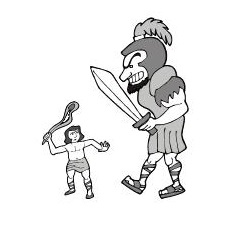4 Key Differences Between Public Adjusters and Insurance Adjusters
When you face a damage claim, such as one from a fire, storm, or other disaster, you're likely to encounter two types of adjusters: Public Adjusters and Insurance Adjusters. Both play critical roles in the insurance claim process, but they serve different interests and work under different models. Understanding the differences between these two professionals can greatly influence the outcome of your claim.
Here are the four key differences between public adjusters and insurance adjusters:
Their Primary Loyalty (Client vs. Insurance Company)
Public Adjusters: A public adjuster is an independent adjuster who represents the interests of the policyholder in appraising and negotiating an insurance claim. Their primary loyalty is to you, the client. Their role is to ensure you receive the maximum compensation possible for your loss.
Insurance Adjusters: Also known as a "company adjuster", "staff adjuster", or "independent adjuster", they work for and are paid by the insurance company. Their primary responsibility is to protect the financial interests of the insurance company (i.e. their fiduciary duty is to the insurance company.) While they adhere to industry standards and ethical guidelines, their overarching objective is to ensure that the insurance company settles the claim for a reasonable amount, which sometimes may not align with what you believe you're entitled to, or even what the policy affords.
How They're Compensated
Public Adjusters: Typically, public adjusters are paid based on a percentage of the claim settlement (rules can vary by state.) This means their compensation is directly tied to the amount you receive. The more you get paid, the more they earn. This model naturally aligns their interests with yours, as they aim to get the highest possible settlement for you.
Insurance Adjusters: Insurance adjusters are salaried employees of the insurance company. They may also receive bonuses or incentives based on their performance, but their compensation isn’t usually directly tied to the claim settlement amount. They are tasked with ensuring claims are handled within the insurance company's guidelines (the insurance company's guidelines can be in direct opposition to policy guidelines).
Their Role in the Claim Process
Public Adjusters: They are your advocate. Once hired, a public adjuster will evaluate the damages, read through your insurance policy to determine coverage, estimate repair costs, and negotiate with the insurance company on your behalf. They manage the nitty-gritty details, ensuring all paperwork is filed correctly and on time, and they work diligently to ensure a timely and fair settlement.
Insurance Adjusters: Their primary role is to investigate the claim on behalf of the insurance company. This includes visiting the site of the loss, assessing damage, interviewing claimants and witnesses, and determining the insurance company's liability. They will also estimate the cost of repairs or replacement and recommend how much the insurance company should pay for the claim.
The Outcome for Policyholders
Public Adjusters: Policyholders who hire public adjusters often receive a higher settlement than those who don't. A study by the Office of Program Policy Analysis & Government Accountability in Florida found that policyholders using public adjusters for non-catastrophic claims received 574% more money than those who didn't. Public adjusters have the expertise, resources, and incentive to challenge the insurance company's assessment and push for a higher settlement.
Insurance Adjusters: While insurance adjusters have the expertise to assess damages accurately, their evaluations may sometimes lean towards the conservative side to align with the insurance company's interests. Policyholders might accept the initial offer without realizing they could be entitled to more. However, it's also worth noting that company adjusters aim for efficient claim processing, which can mean quicker payouts.
Conclusion
Navigating the maze of insurance claims, especially during distressing times, can be a daunting task. Knowing the differences between public adjusters and insurance adjusters is essential. While both professionals are necessary in the claim process, understanding their roles, loyalties, compensation structures, and the potential outcomes can empower policyholders to make informed decisions.
If you're considering filing a claim, weigh the pros and cons of hiring a public adjuster. Their advocacy might be the difference between a settlement that merely scratches the surface and one that truly covers your losses.
